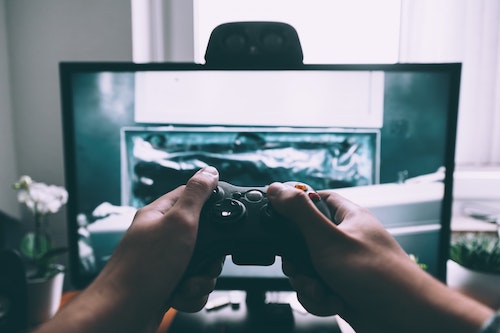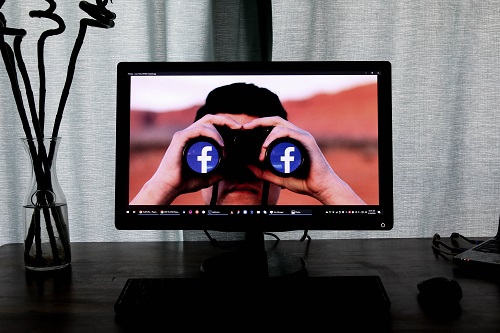Whether we realize it or not, we all love technology. We’re obsessed with it. We’re addicted to it. We use it all day, every day. And while it has so many positive effects, there are a number of facts and trends about technology that are, or have the potential to be, quite dangerous.
“I fear the day that technology will surpass our human interaction. The world will have a generation of idiots.” That came from Albert Einstein. This prophecy is evident in our every day lives. It’s clear, in many respects, we’ve crossed the line.
The world’s distrust of technology is deep-rooted in history. It’s been exploited in Hollywood for decades in science fiction and apocalyptic horror. It’s been a target in literature for over a hundred years. Mary Shelley’s epic Frankenstein was the embodiment of an unnatural use of technology. It lead to terrifying results.
More recently, Hollywood has popularized the negative impact of technology with a rush of apocalyptic films. There’s intrigue. People are flocking to the box office to see the downfall of society. In the course of history, no new technology has been brought into the world that hasn’t been subject to scrutiny and public fear.
The Dangerous Trends of Technology
Technology is moving fast – faster than ever before. And there’s no one to blame but ourselves. We can’t help it. We want the latest smartphones, which have taken control of society’s social fabric.
We want efficiency, which has paved the way for artificial intelligence – a rather popular fictional topic. Of course, in this realm of discussion, most of the doomsday scenarios are of the conspiratorial variety.
Now to be fair, technology has so many positive effects on society that it’s impossible to discount. Education, the economy, healthcare, the list goes on. But there are countless negatives to go along with it. And that’s what we’re about to discuss.
This isn’t an opinion piece. After all, we obviously love technology at NextGyn. But pointing out its flaws makes for a great case study, and something we should still be aware of.
So without further ado, here are the top 7 dangerous technology facts and trends for 2020 and beyond.
 1. Addiction
1. Addiction
An earlier danger in the modern technological realm was (and still is) video game addiction. It’s a problem that is prevalent all over the world. China presents the worst case study. Which leads to the first fact.
An online survey published in China Youth Daily reported that nearly 18 percent of Chinese teenagers play video games every day. About 24 percent of them are banging on their video game controllers – or finger-tapping their smartphones – every single day. According to the World Health Organization, people who play video games for four hours a day over the course of five days+ per week, are likely to become addicted.
Children have even died from so-called video game addiction. And believe it or not, video game addiction treatment centers actually exist. In 2017, a teenager died in one of these treatment centers of an apparent suicide.
Moreover, a man in China became paralyzed from the waist down after playing video games in an Internet cafe for 20 hours straight. The physical and mental paralysis that comes from excessive gaming is especially dangerous for today’s youths.
2. Social Interaction
Take a look at the modern medical practitioner’s waiting room. There isn’t a moment of social interaction. We’re buried in our smartphones. Where are you right this minute? Are you in a public space? If so, take a look around. Assuredly, most people in the room are on their phones.
And let’s face it, it’s not like we’re actually on the phone speaking to people. We’re texting, checking emails, playing Candy Crush, and scanning Facebook and Twitter.
Sure, it’s a form of social interaction, but is it healthy social interaction? I can’t say for sure. It could just be a different form of social interaction. Something to ponder.
There is some emerging scientific facts on the topic. In 2012, scientists discovered that brain chemicals of people who habitually used the Internet have some unusual connections in the brain nerve fibers. It’s a similar result that would occur in an alcoholic or drug addict. The effects can have a profound impact on relationships and daily interactions with others.
In ways, it’s spelled the end (or decrease) of intimacy. People lack the courage to end relationships or begin new relationships in the traditional manner. Dating networks like Tinder and Match remove a significant part of human connection.
3. Economy
With the advent of automation, technological impacts on the economy have caused widespread concern. Now, it is part of the economic process. That is, the competition that drives businesses to find more efficient ways for production. It has ingrained business owners with a powerful incentive to take advantage of every new technology.
But it comes with a price.
As the economist Joseph Schumpeter once described, “economic innovation is the perennial gale of creative destruction.” In other words, it creates jobs and boosts profits, but also destroys jobs in the process.
You’ve likely noticed this in the fast food industry. Walk into a McDonalds and you’re lucky to find more than one cashier at the counter. Instead, you have people selecting and paying for their meals on large, horizontal touchscreen monitors. Let’s face it, we like it. It’s a great way to cut down on social interaction (refer to the previous point).
At the beginning of the 20th century, a third of the workforce was in the agricultural sector. Now, a mere two percent work on a farm. Even more daunting, research from Oxford University said that in the coming decades nearly 50 percent of all jobs would be automated. The majority of these jobs will be from the middle-class. Consequently, the wealth gap will likely widen.
 4. Privacy
4. Privacy
Another technology trend that is now prevalent in modern times. Google knows some rather intimate details about our lives. The search engine giant knows our search history. Which essentially means they know everything about us. At least, our shopping preferences and all the things that we are interested in. They know the apps we use, our YouTube history, etc. etc.
Facebook arguably knows even more. The social network stores all our conversations, and even the locations we are logged in.
Possibly one of the most devastating privacy implications is hacking. Let’s lay out some of the statistics:
- According to Stopthehacker.com, “it takes only 10 minutes to crack a lowercase password that is 6 characters long. Add two extra letters and a few uppercase letters and that number jumps to 3 years.”
- Almost 75 percent of the United States have been hacked. Such cyber crimes have led to identity theft that has ruined people’s credit and drained their bank accounts.
- In one survey, 9 out of 10 businesses claim they fell victim to a system hack over the past year. Some 75 percent of these businesses affirmed that they were hacked multiple times over that period.
5. Artificial Intelligence
Many prominent business individuals, even people in the tech world, warn of the dangers of artificial intelligence. Elon Musk of Tesla (who, to be fair, can be a little kooky at times) has compared AI to the likes of North Korea’s infamous dictator. Bill Gates has even expressed some hesitancy, believing that we need to be cautious in our pursuits of more advanced AI.
Even Russian president Vladimir Putin has weighed in. Autonomous weapons designed to take lives is one way artificial intelligence poses some risks. In fact, the ongoing nuclear arms race could eventually be replaced with a worldwide autonomous weapons race.
Here was Putin’s gloomy outlook: “Artificial intelligence is the future, not only for Russia, but for all of mankind. It comes with enormous opportunities, but also threats that are unpredictable. Whoever becomes the leader in this sphere will become the ruler of the world.”
More conspiratorial concerns (that may become less and less conspiratorial over time) involve the belief that AI-powered robots will turn on us. Whether it’s a consumer product or a military creation, advanced AI could become so organic that the spawns will begin to make fatal decisions.
An odd, and seemingly implausible, effect could be computerized intimacy. You can see the trend. Much of these dangerous technological facts lead back to social interaction.
If this is a topic of interest, or you are experiencing some skepticism, check out the movie “Her.” It’s a film starring Joaquin Phoenix that starts with a marriage coming to an end. The man is lonely and vulnerable. In a nutshell, he becomes entranced with an OS named Samantha. We’ll leave it at that (no spoilers here, as this is evident in the trailer). If you’re interested, this is something we discussed in a previous article on artificial intelligence.
6. Bullying
Children are among the most dreadful casualties of technological development. It’s most commonly evident in the social media world. Almost 60 percent of American teens claim they have been harassed or bullied on the Internet.
Sure, name-calling and the spread of rumors isn’t anything new. But the growth of smartphone use and rapid rise of social media has intensified things. The frequency and breadth of online bullying is enormous.
It’s become so bad that an increasing number of teenagers are committing suicide due to online bullying. A recent study suggested that kids who have been bullied are twice as likely to have suicidal thoughts. Ergo, the chance that the adolescents will commit suicide is doubled.
“Suicide is among the most important causes of adolescent mortality,” asserted Mitch van Geel, one of the study’s authors. “We found that attempted suicides are significantly related to bullying, a highly prevalent behavior among adolescents.”
Texting and other forms of digital communication – like Facebook messaging – are common ways teenagers build and nurture relationships. This intense volume of connectivity (as far as frequency) has led to some troubling consequences. They are sexual, in nature.
Three in four teenagers claim they have been sent explicit photos that were unwanted. Seven percent say one of their peers has spread explicit photos to others without their consent.
 7. Human Decency
7. Human Decency
The implications of this trend aren’t as serious as the others on the list. But the Internet has changed how we treat each other. It’s like we’ve built secondary personas: One is the ordinary-world persona, where we socialize at parties and with one-on-one conversations.
Second is our online personas. That is, our interaction on social media and the comment sections of news articles. Typically, politics is the topic of discussion. People who wouldn’t dare speak about politics in the real world transform into completely different people online.
The Internet has increased their bravery. Except it hasn’t. They’ll get into unending flame wars on social media when someone posts something about a politician or polarizing political topic.
In modern society, many people display a contradictory image of who they truly are. They come off as tough, sometimes “bully-ish,” on social media. But in person, they are quiet and shy. They hide behind cellphones and computer monitors.
In some respects, social media has turned into a damaging outlet. People have relationships that for years have been amicable. Then one small comment on Facebook has caused individuals to avoid each other, potentially for the rest of their lives.
Will Technology Bring Us to Total Collapse?
Do existing and emerging technologies spell inevitable doom? The end of society? Eh, probably not. But they will (and already have) created a negative impact.
The question is, do the positive effects outweigh the negative effects?
That’s for you to decide.
